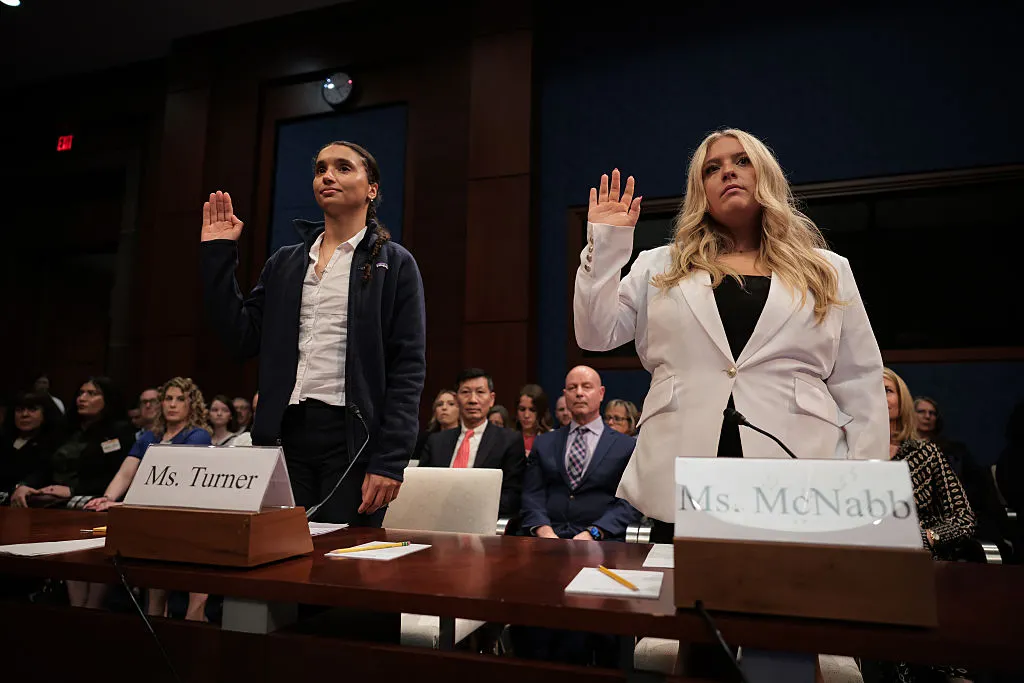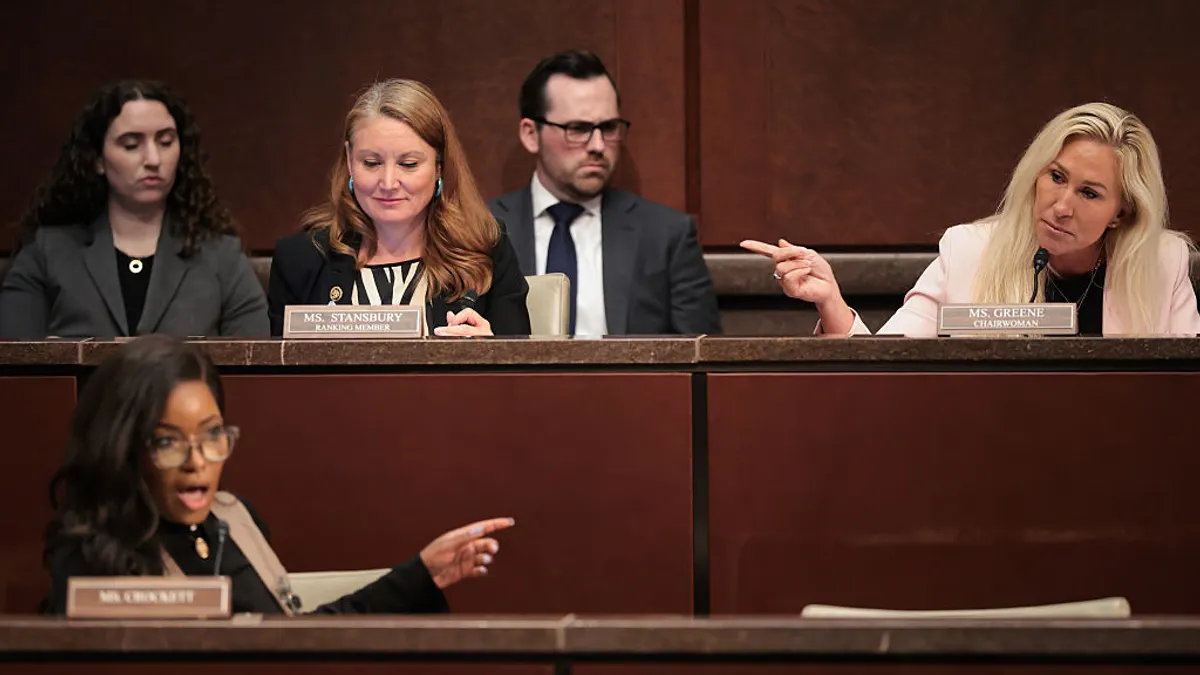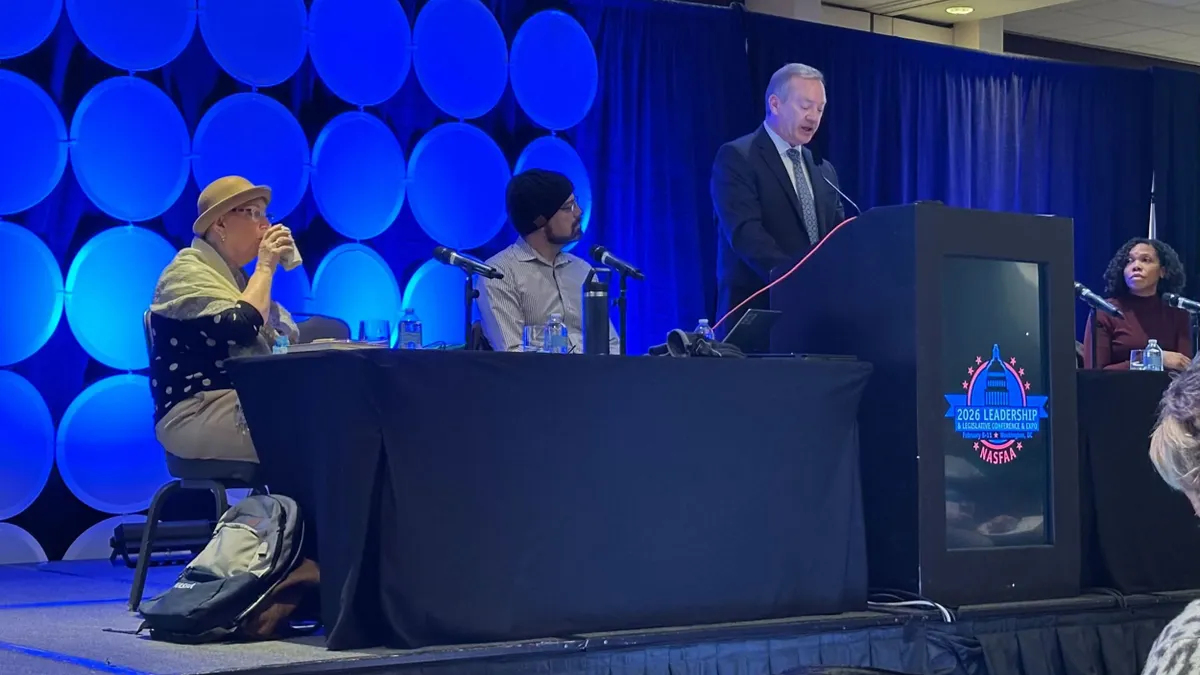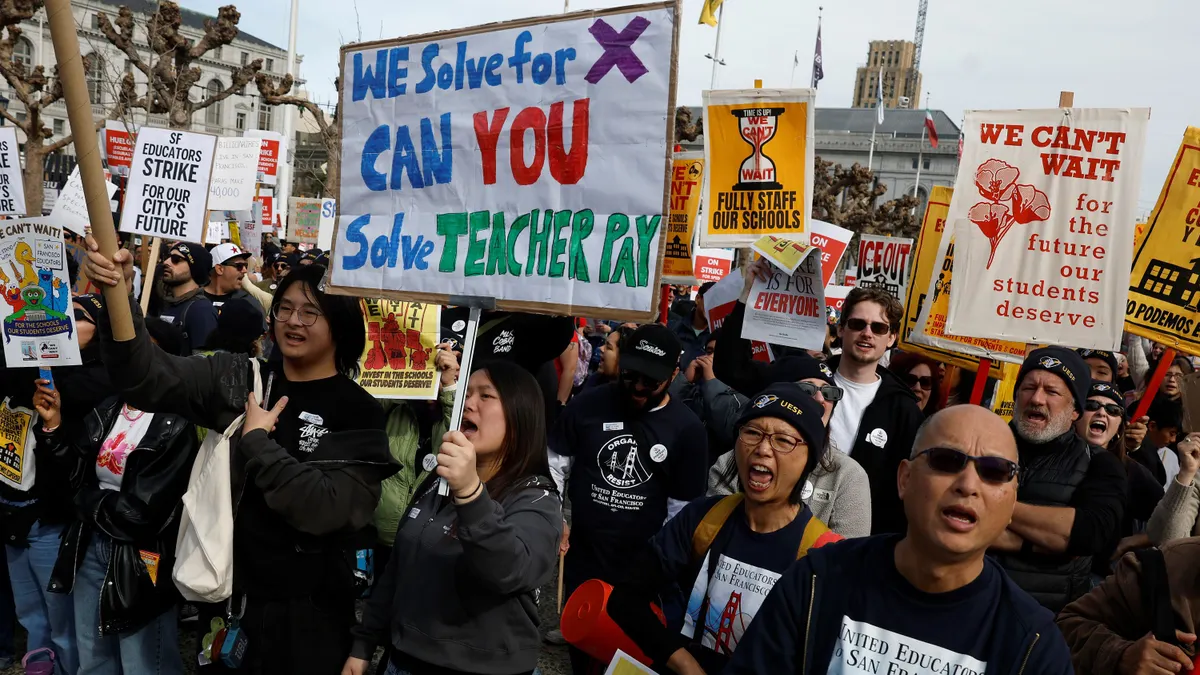Do transgender student athletes' involvement in girls' and women's sports — an issue that has recently jeopardized schools' federal funding — fall under government efficiency and oversight? That question starkly divided lawmakers among party lines in a nearly 4-hour hearing on Wednesday held by the Delivering on Government Efficiency Subcommittee, a newly-formed subcommittee of the House Committee on Oversight and Accountability.
The DOGE Subcommittee hearing — meant to discuss the politically charged issue of Title IX and transgender student rights that has taken center stage under the Trump administration — quickly deteriorated to repeated gavel-banging, a motion to adjourn the meeting, disagreement over the committee's purpose, arguments over lawmakers' allotted speaking times, and discussions of differences in male and female elbow-joint anatomy and muscle mass.
The subcommittee was created to oversee "federal civil service, including compensation, classification, and benefits; federal property disposal; government reorganizations and operations, including transparency, performance, grants management, and accounting measures generally," according to the Committee on Oversight and Government Reform's rule book.
Witnesses included two cisgender female athletes advocating for athletic teams without transgender students, the chair for the USA Fencing Board of Directors, and the CEO of National Women's Law Center, a nonprofit organization that advocates for LGBTQ+ rights.
Republican lawmakers, who have called for less federal oversight of education and a return of that power to the states, said the hearing was necessary because it related to Title IX, a federal law meant to prohibit sex discrimination in federally funded education programs.
"It's an important issue that biological men stay out of women's sports," said Rep. Marjorie Taylor Greene, chair of the committee and Republican from Georgia.
Rep. William Timmons, R-S.C., said the hearing was meant to "shine a light not only on the integrity of women's sports," but also on how institutions like USA Fencing and others may be misusing their authority to "push controversial policies that violate basic human rights and disregard their Congressionally-authorized mission."
"This is what happens when you allow God to be pushed out of everything," added Rep. Eli Crane, R-Ariz.
Democratic lawmakers at the hearing, however, said it was a waste of the subcommittee's time and did not fall under the body's jurisdiction, which instead includes issues like proposed cuts across the government.
"This subcommittee could be focusing on the layoffs that President Trump has executed: over 200,000 firings of federal employees," said Rep. Stephen Lynch, D-Mass. "That does affect the efficiency of our government programs."
Rep. Robert Garcia, D-Calif., concurred, saying the subcommittee has "never really talked about government efficiency or any serious legislative work," and that he was "surprised that this subcommittee is not apparently in charge of policing women's sports."

DOGE impacts on K-12
The DOGE Subcommittee is among the latest in a series of efforts by the Trump administration and Republicans to cut back on what they say are instances of abuse, fraud and waste in the government. Its formation is an extension of similar efforts conducted by the Department of Government Efficiency, also referred to as DOGE.
Those efforts have had major implications for the K-12 sector in recent months, including gutting the Education Department by laying off more than 1,300 employees, closing or significantly reducing its offices, canceling grants entirely or retracting grant competitions, and proposing a 15% cut to the department's funding.
The reduction in expenses from DOGE's efforts is also expected to put a strain on K-12 finances, according to a Moody's report released in April.
Among DOGE cuts were seven of the Education Department’s 12 local offices for the Office for Civil Rights, leaving schools with reduced oversight of civil rights compliance. Those offices were in charge of investigating allegations of Title IX violations — the subject of the hearing Wednesday — for half of states.
The Education Department has since announced a Title IX Special Investigations Team, which taps the Department of Justice for investigations and ultimate enforcement of the separation of transgender students from girls’ and women’s athletics teams and spaces in schools and colleges.
One such investigation recently conducted by the Education Department and referred to the Justice Department for enforcement has put on the line almost $864 million of Maine's federal education funding, which it said could be cut for past and present Title IX violations. Those violations were found over the state's policy allowing transgender athletes to play on girls' and women's sports teams.
The Department of Justice, in suing the state last month, said "many, many states" were next, including California and Minnesota, which are currently under investigation for alleged Title IX and FERPA violations related to transgender issues like school sports participation and gender support plans.
Title IX civil rights complaints have historically come second to disability-related complaints when excluding thousands of sex discrimination complaints that were filed by a single person in recent fiscal years, skewing OCR data.
Disability-related complaints were briefly paused by the administration after Trump took office and then resumed after reports emerged of thousands of OCR investigations coming to an abrupt halt.






 Dive Awards
Dive Awards
















